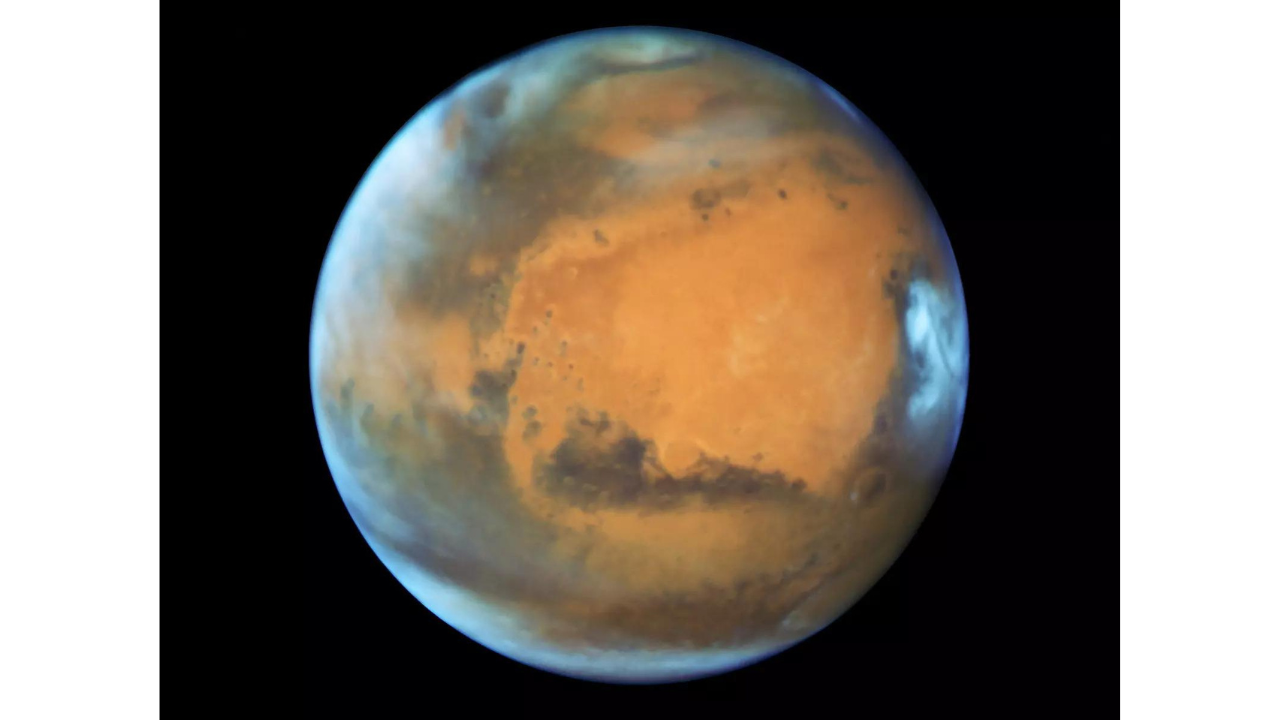NEW DELHI: A recent research by a team of scientists at Penn State utilizing data from Nasa’s Curiosity rover suggests that Mars might have been home to flowing rivers. The presence of rivers is a vital factor for life on Earth, leading researchers to speculate that these findings could indicate the past existence of extraterrestrial organisms.
According to USA Today, the research suggested that more undiscovered river deposits might exist elsewhere on Mars, hinting at a time when a significant portion of the planet could have been shaped by flowing rivers.
In a study published in Geophysical Research Letters, the researchers propose that numerous craters on Mars could have been habitable rivers, which can potentially reshape understanding of the planet’s history.
The concept of rivers on Mars isn’t entirely new with the evidence of riverbeds being documented since the Mariner 9 mission, which orbited Mars in 1971.
Expressed his optimism, Benjamin Cardenas, a geosciences professor at Penn State and the lead author of the study, said, “Mars could have had far more rivers than previously believed, which certainly paints a more optimistic view of ancient life on Mars. It offers a vision of Mars where most of the planet once had the right conditions for life.”
Mounting evidence for ancient life on mars
Evidence pointing towards the possibility of past life on Mars has been on the rise in recent years. NASA’s Perseverance rover uncovered organic molecules, which could be an indicator of past life, in rocks near a former Martian lake. The presence of these molecules does not constitute definitive proof of past or present life on Mars as non-biological processes are still considered a more likely explanation.
Nasa’s ambitious Mars missions
While humans are yet to set foot on Mars, Nasa has been making substantial progress in studying the plane by deploying a multitude of remotely operated landers, orbiters and rovers to collect data and geological samples.
Nasa’s Artemis program, which marks a return to lunar missions after decades, aims to send astronauts back to the Moon by 2025. This lunar presence will serve as a stepping stone for future missions to Mars. In September, Nasa had successfully tested MOXIE, a device that can produce oxygen on Mars for future astronaut missions raising hopes of more advanced missions on Mars.
According to USA Today, the research suggested that more undiscovered river deposits might exist elsewhere on Mars, hinting at a time when a significant portion of the planet could have been shaped by flowing rivers.
In a study published in Geophysical Research Letters, the researchers propose that numerous craters on Mars could have been habitable rivers, which can potentially reshape understanding of the planet’s history.
The concept of rivers on Mars isn’t entirely new with the evidence of riverbeds being documented since the Mariner 9 mission, which orbited Mars in 1971.
Expressed his optimism, Benjamin Cardenas, a geosciences professor at Penn State and the lead author of the study, said, “Mars could have had far more rivers than previously believed, which certainly paints a more optimistic view of ancient life on Mars. It offers a vision of Mars where most of the planet once had the right conditions for life.”
Mounting evidence for ancient life on mars
Evidence pointing towards the possibility of past life on Mars has been on the rise in recent years. NASA’s Perseverance rover uncovered organic molecules, which could be an indicator of past life, in rocks near a former Martian lake. The presence of these molecules does not constitute definitive proof of past or present life on Mars as non-biological processes are still considered a more likely explanation.
Nasa’s ambitious Mars missions
While humans are yet to set foot on Mars, Nasa has been making substantial progress in studying the plane by deploying a multitude of remotely operated landers, orbiters and rovers to collect data and geological samples.
Nasa’s Artemis program, which marks a return to lunar missions after decades, aims to send astronauts back to the Moon by 2025. This lunar presence will serve as a stepping stone for future missions to Mars. In September, Nasa had successfully tested MOXIE, a device that can produce oxygen on Mars for future astronaut missions raising hopes of more advanced missions on Mars.

